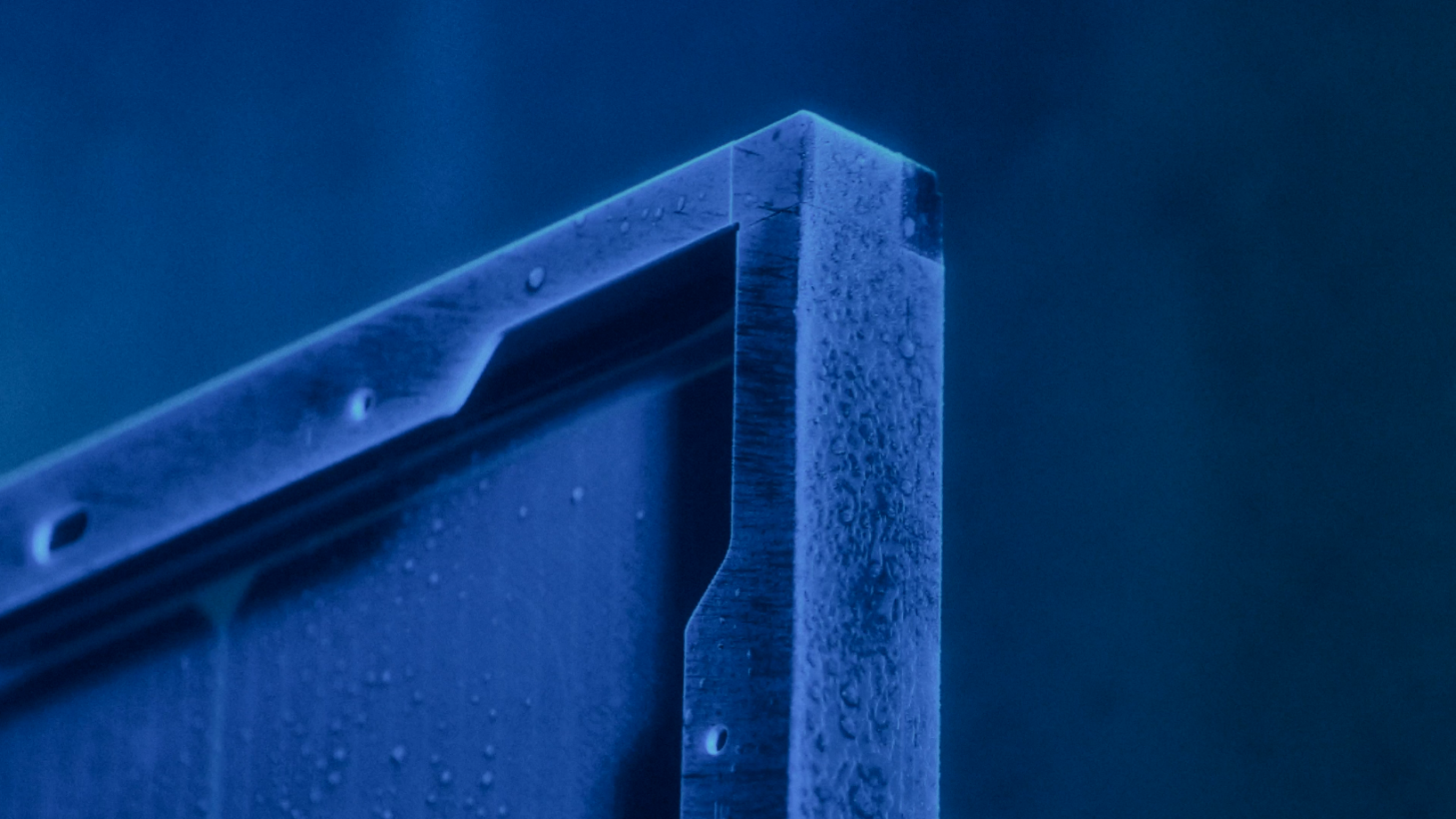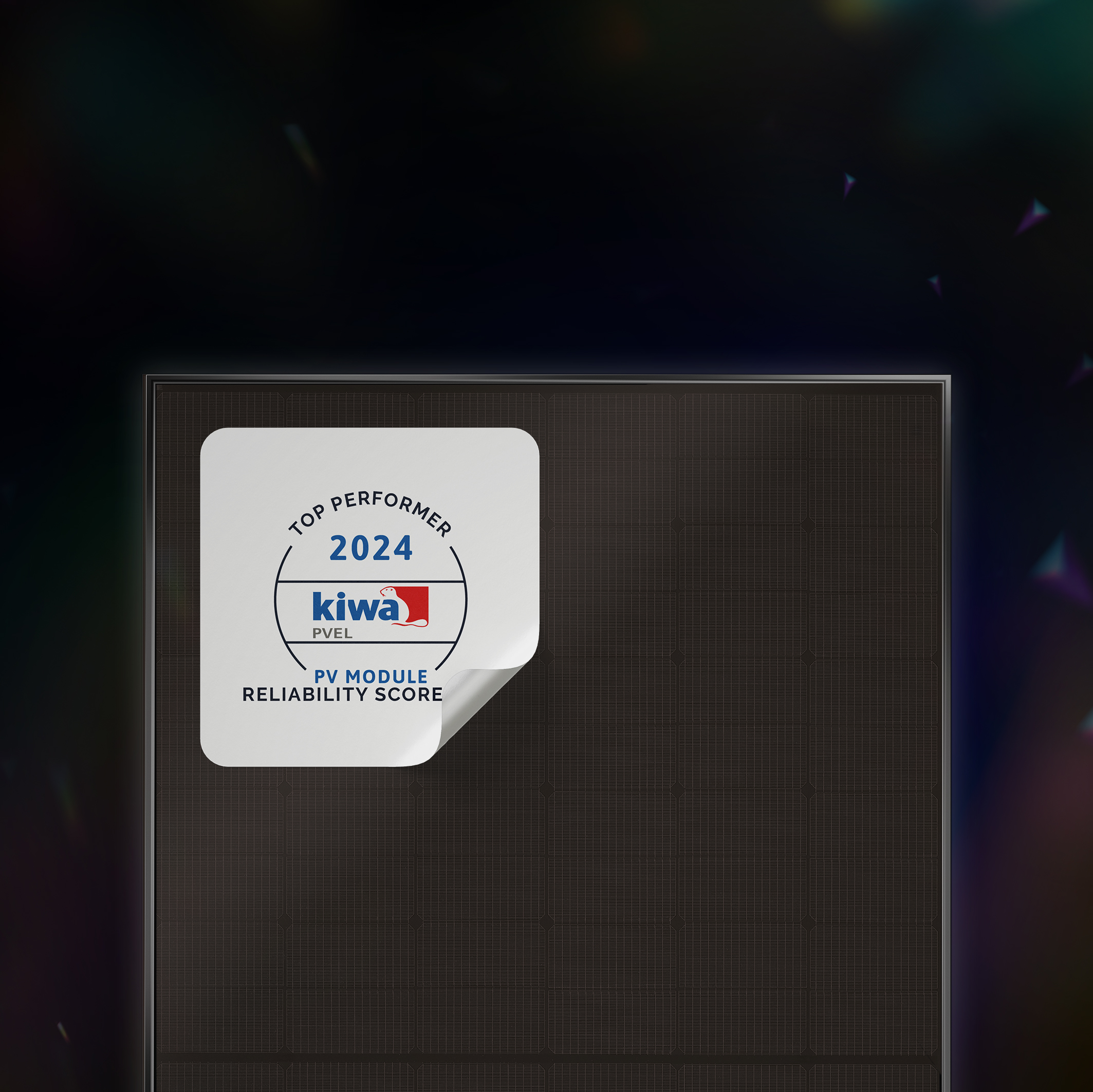
Outstanding: KIWA PVEL Top Performer
All Meyer Burger modules have achieved the highest category of "Top Performer" in all seven quality tests conducted by the independent US testing institute PVEL at the first attempt.
Only less than six per cent of the models tested achieve this exceptional performance in all reliability tests. PVEL stands for PV Evolution Labs and is a leading independent laboratory in Berkeley, USA, which is part of the renowned Kiwa Group.
For over a decade, PVEL has been testing the reliability and performance of solar modules and energy storage systems at the highest level.
The 7 test disciplines include:
- Thermal Cycling (TC)
- Damp Heat (DH)
- Mechanical stress sequence (MSS)
- Potential-induced degradation (PID)
- UVID sensitivity
- LETID sensitivity
- Hail stress sequence (HSS)
Triple the testing, zero compromise: Our solar modules excel with ease.
Meeting the standards is one thing, far exceeding the fulfillment criteria is a Meyer Burger matter. We are one of the few manufacturers to have an IEC-certified module test center, which plays a crucial role in daily testing and product development. Here we go to the limit in our tests and push our solar modules to physical and technical limits and beyond in stress and endurance tests. We test with three times the intensity because with the right energy anything is possible. To get to the point: Meyer Burger tested means triple the IEC standard.
After all, purchasing a solar system is in most cases a decision for life.
Cooling it down in the climate and temperature chamber.
Solar modules from Meyer Burger deliver top performance even under dynamic weather conditions. To ensure that it stays that way, we subject our products to moist and dry heat, and perform moisture-freeze and temperature change tests. Depending on the test, the temperatures vary between -40 °C and 85 °C (-40 °F and 185 °F), with variable or constant humidity of up to 85%. During the tests, which lasted up to 3,000 hours, heat and frost alternated up to 600 times.
Peak performance, whatever the weather.
-40 °C to 85 °C
(-40 °F and 185 °F)
Temperature range
85%
variable/constant humidity
600 ×
Temperature change per test run
2,000 – 3,000 hours
Endurance test
Thriving in the face of challenges even under the highest pressure.
To ensure that our modules offer the greatest possible stability and resistance in snow and storms, we carry out dynamic and static load tests with up to 6,000 Pascal pressure and 4,000 Pascal suction and up to 1,000 cycles with 1,000 Pascal.
Come rain or shine, we are doing just fine!
1,000 – 6,000Pa
Pressure load
1,000 – 4,000Pa
Suction load
9 – 3,000
Repetitions/cycles
1 – 9 hours
Endurance test
Sun-kissed and UV-zoned.
Our solar modules should still have maximum performance and generate the highest energy yields even when they are old. To achieve this, we specifically expose our modules to artificial sunlight and test them for hotspots in long-term tests. The less solar modules degrade and the less susceptible they are to the formation of hot cell areas, the higher their performance consistency and energy yield. For this purpose, among other things: The entire module surface is irradiated by twelve high-performance lights with 1,000 W/m² and 1,300 W/m² for bifacial applications. For maximum UV-resistant materials and adhesive connections, we test with a UV dose of 60 kWh. This corresponds to the annual equivalent of UV radiation in Central Europe.
Maximum performance stability and continuous operation without hotspots
1,000 – 1,300W/m²
Irradiation
4 hours
Hotspot check
60kWh
UV dose
20 kWh/m²
Light-Induced Degradation (LID) Test
Hail to hail-proof solar modules
Our promise: maximum protection against damage during transport, installation, and storms such as heavy rain and hail. To keep this promise, we set ourselves the highest standards for module breakage testing and hail storming. The 45.5 kg (100 lbs) weight swings against the glass surface at least three times without leaving any visible and measurable damage. In addition, we at Meyer Burger are only satisfied when a hailstone with a diameter of 35 mm (1.4 inches) accelerated to 97.9 km/h (that's 60.9 mph or 27.2 m/s) does not cause any damage to the module in eleven hit positions.
There is no bad weather for top-notch modules.
35mm
(3.5")
Hailstone diameter
97.9km/h
(60.9mph)
Shooting speed
11
Hit positions
45.5kg
(100lbs)
Pendulum weight
Turning a cold shoulder to fire.
To minimize the risk of fire hazards and ensure optimal protection against fires or dripping materials, Meyer Burger collaborates with independent fire protection experts to safeguard our solar modules and installations. We have our modules tested in fire tests of up to ten minutes with fire baskets and gas flames at temperatures of 600–760 °C. And successfully. Solar modules from Meyer Burger meet the required fire protection classes and are approved in all EU countries.
Fireproof fire protection
600 – 760 °C
(1,112 – 1,400 °F)
Target temperatures
6 – 10 minutes
Burning time
up to 4
Repetitions
2
Standard tests (UL/IEC)
Meyer Burger Quality & Certification Lab: VDE-recognized testing and certification
laboratory with leading international quality standards
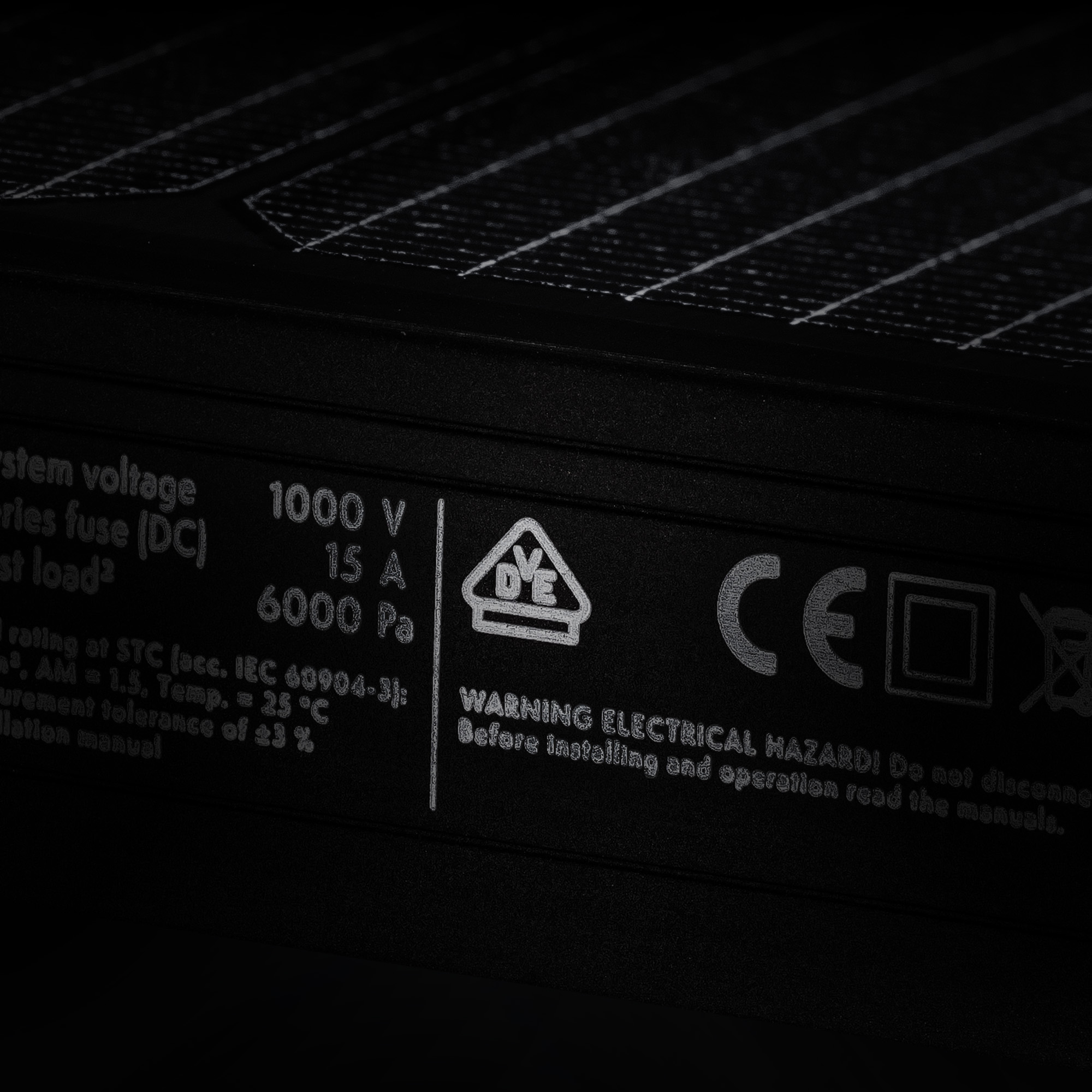
In the Meyer Burger Quality & Certification Lab in Freiberg we operate over 40 state-of-the-art test stands for electrical, mechanical and optical measurements. Our solar modules and solar roof tiles are internally checked in accordance with the IEC standard 61215-2. They go through particularly critical material and module tests several times, but at least three times. The laboratory, which is certified and recognized by the VDE Institute, includes around 50 test procedures on over 500 m² of laboratory space and guarantees the highest performance and maximum performance consistency for up to 30 years.
The Meyer Burger Quality & Certification Lab is equipped with high-tech measuring and testing facilities, including spectrometers, flashers, UV and solar simulators, climate chambers, temperature shock test chambers, hail gun systems and mechanical stress systems. For certain tests, such as fire and flame tests, we work with renowned partners such as MPA Dresden GmbH to test and certify modules according to national and European standards.
Meyer Burger goes beyond meeting standards and relies on the highest intensity of testing. Stress and endurance tests push our solar modules to physical and technical limits. We strive for perfect harmony between cell and module by using the best materials and carrying out material testing beyond the norm. Internal tests with an above-average number of test samples and extra-long runtime simulations deliver exact test results and secured long-running qualifications. Our PV products not only meet the highest performance requirements, but also design and aesthetic requirements, thanks to 360° visual inspections that detect even the smallest deviations.
Once is twice too little.
Temperature change
(4h heating or cooling phase I –40 °C ⇿ 85 °C)
IEC standard: 200 cycles / 800 hours
Meyer Burger: 600 cycles / 2,400 hours
Moisture-heat
(constant 85 °C and 85% relative humidity)
IEC standard: 1,000 hours
Meyer Burger: 3,000 hours
Damp-frost
(0.5 h –40 °C I 20 h 85 °C I 85% relative humidity)
IEC standard: 10 cycles / 240 hours
Meyer Burger: 30 cycles / 720 hours
Static mechanical load
(6,000 Pa pressure, 4,000 Pa suction)
IEC standard: 6 cycles / 6 hours
Meyer Burger 18 cycles / 18 hours
Dynamic mechanical load
(1,000Pa pressure and suction)
IEC standard: 2,000 cycles
Meyer Burger: 6,000 cycles
Time to explore our solar products.
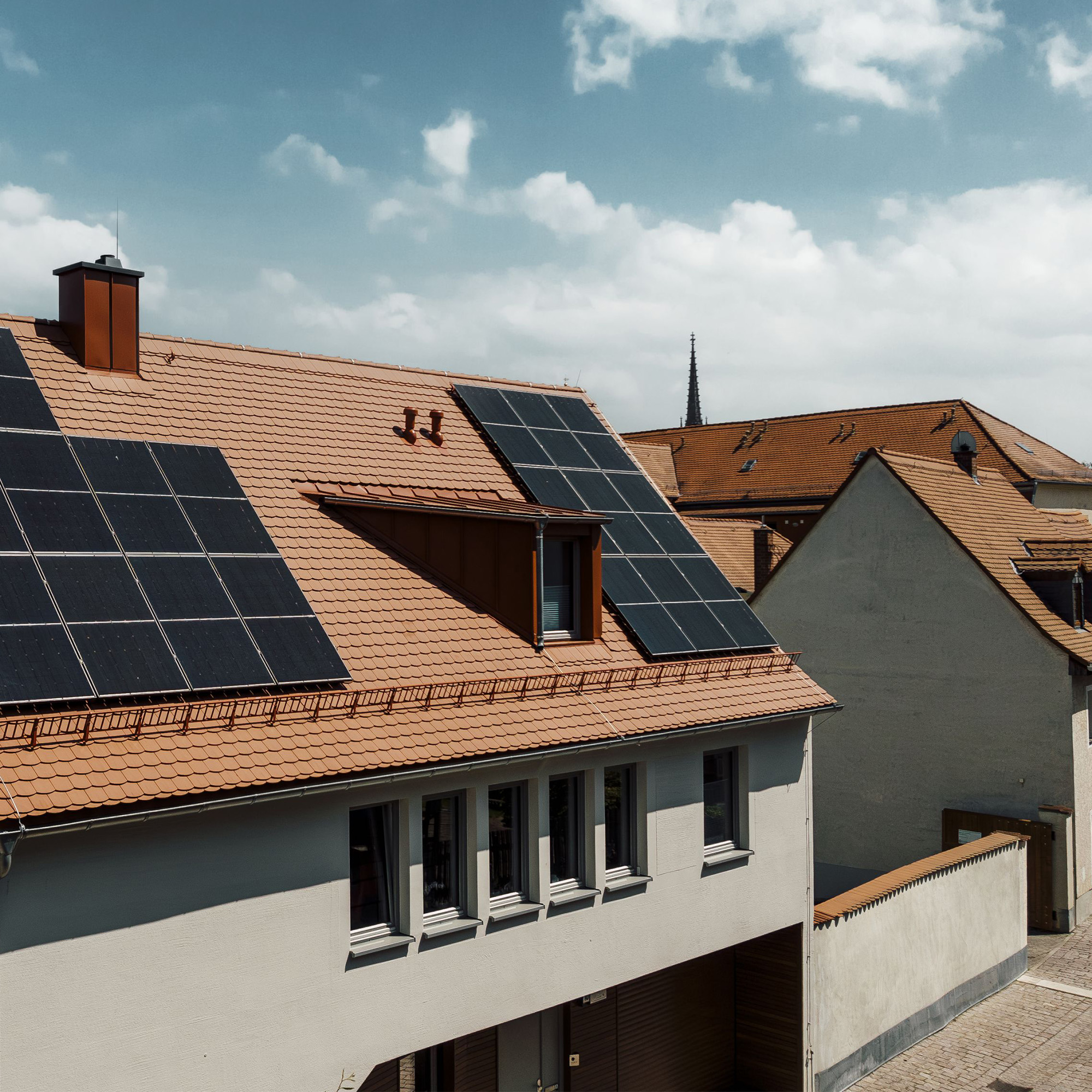
Solar modules
High-performance solar modules with patented Heterojunction SmartWire Connection Technology (SWCT®).
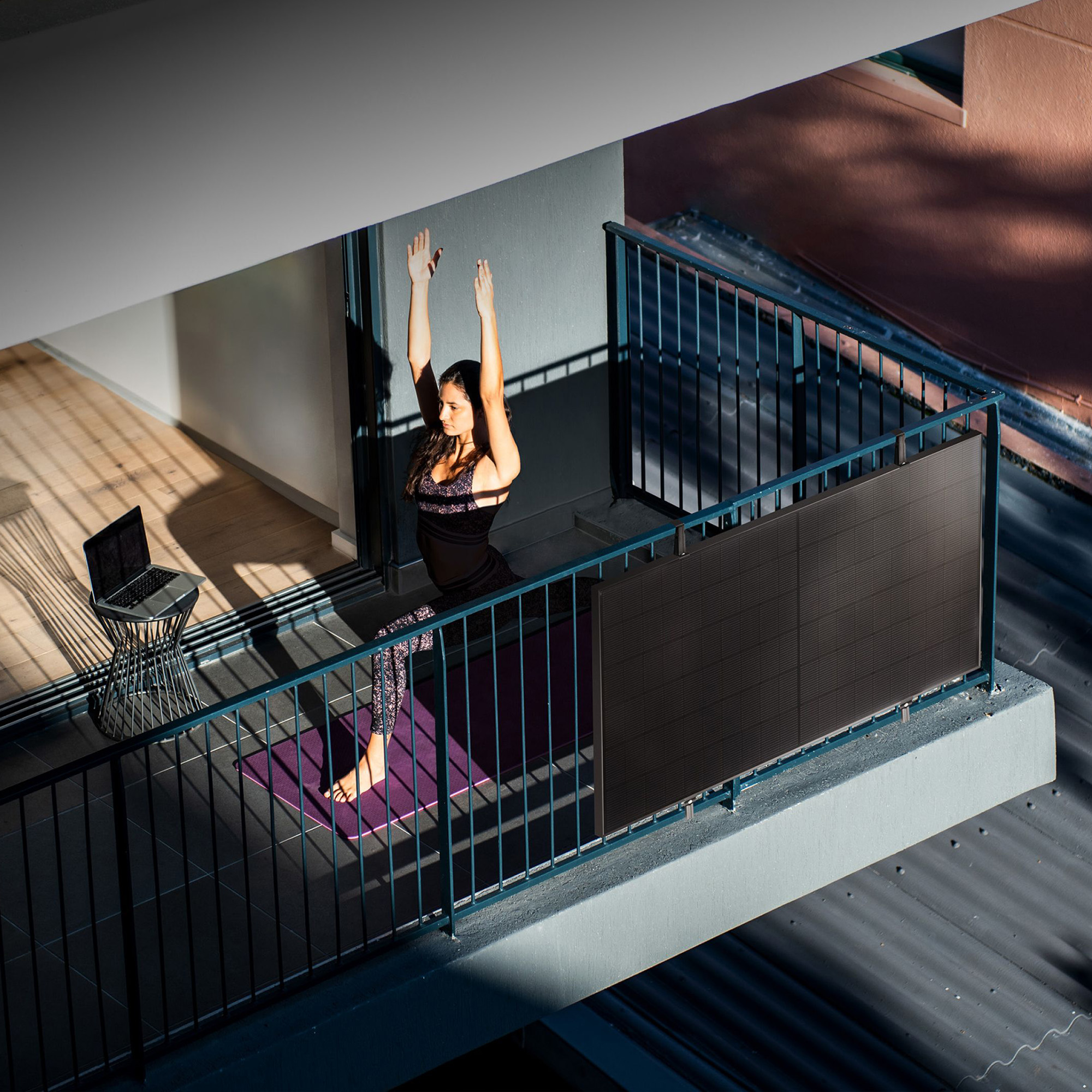
Balcony solar
Plug and play solar package for your balcony, made in Germany.
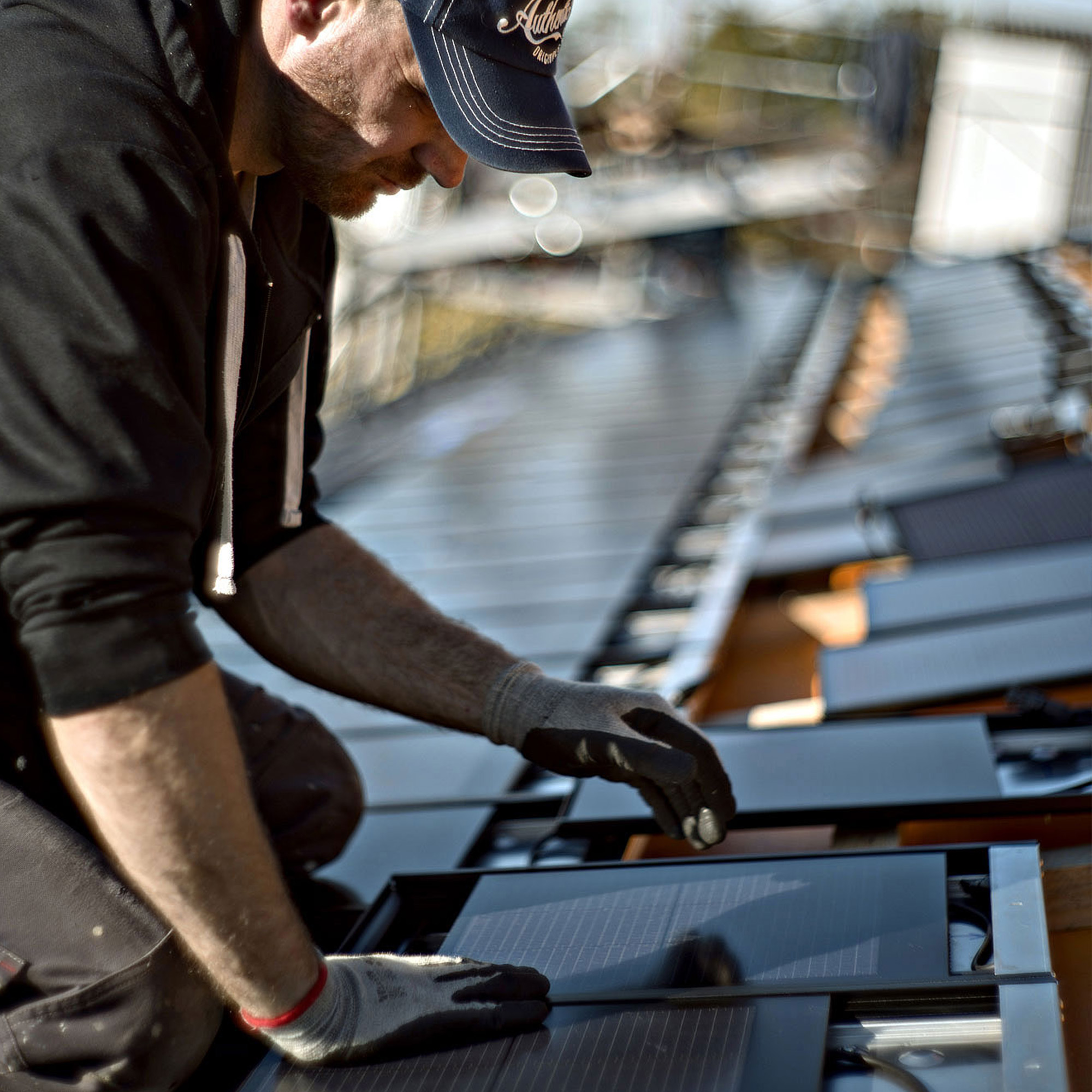
Solar tiles
Innovative solar tiles
Learn more about Meyer Burger Tile
